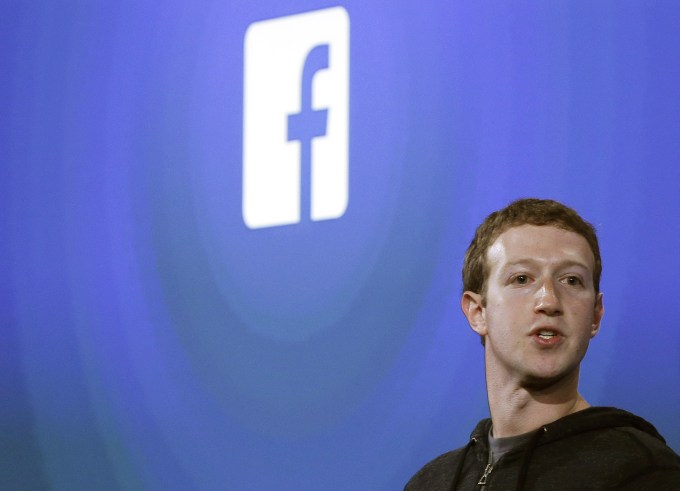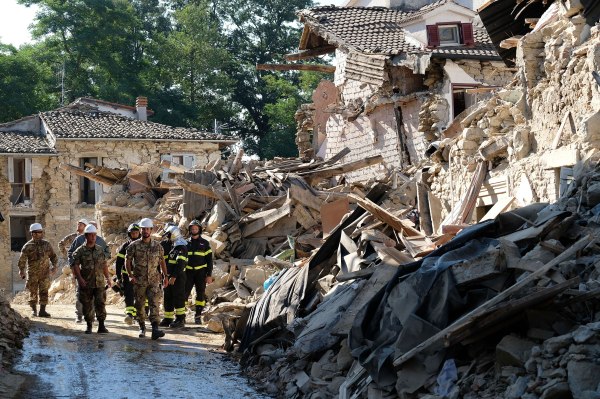On August 24th, a warm summer night, all of Europe was shaken when an earthquake measuring 6.2 on the moment magnitude scale, hit central Italy.
“The town [Amatrice] doesn’t exist anymore…..it’s all gone,” said Sergio Pirozzi, mayor of the small town of Amatrice during an interview immediately after the tragedy. More than 290 people died, and dozens more are still missing.
As an Italian expat in the UK I felt both extremely close to the population hit by the tragedy and quite powerless. I started to look online for ways to help my fellow citizens and I was glad to find out that many initiatives have been put in place.
“Un Aiuto Subito” (A Help Now) is a crowdfounding campaign started to collect money to support the victims and the reconstructions of the areas hit by the earthquake.
As of now, the campaign has raised almost $500,000.
“We are very proud of this result and the level of solidarity expressed during this campaign. Donations came from all over the world and we are very grateful for this. Many were asking for a way to donate from abroad without having to pay banks the transfer fee, hence the idea of a crowdfounding campaign,” said Claudio Bedino, founder of Starteed — the company that provides the technology behind the platform.
According to the organizers, around 15% of the money came from foreign countries with US making the biggest single donation with $5,000 from a donor in NY.
Together with Starteed, the campaign was promoted by TIM, a telecom company, Corriere Della Sera, Italy’s leading daily newspaper and LA7 one of the country most influential TV network. This the first time that a crowdfounding campaign in Italy has been initiated to support victims of a natural catastrophe.
Mark Zuckerberg made a controversial donation while visiting Italy for a friend’s wedding (Spotify’s CEO, Daniel EK). Facebook CEO’s donated $500,000 to the Italian Red Cross…in Facebook ads. While many criticized the donation for being not real money and, after all, it’s not going to cost Facebook nor Zuckerberg anything, others saw the real opportunity.
“If this money is spent wisely and strategically, then they could potentially be turned into donations worth several millions of Euros,” says Alessandro Sportelli author of “La pubblicità su Facebook – solo i numeri che contano” a book on Facebook advertising.
When questioned by the audience during his speech at LUISS University in Rome, Zuckerberg also pointed out that Facebook have done a lot to help families and friends of those hit by the tragedy. “We ran a “Safety Check” the day of the earthquake and […] has been one of the most successful we’ve ever seen across the world,” Zuckerberg was quoted as saying.

Facebook CEO Mark Zuckerberg speaks at the company’s headquarters in Menlo Park, Calif., Thursday, April 4, 2013. (AP Photo/Marcio Jose Sanchez)
Not everyone donated, but people from all over the world expressed their solidarity through social media. In particular, Blogmeter, a social media monitoring company, registered in the first two days over 2.7million messages, 1.4 of which were in a foreign language, while the remaining 1.3 were in Italian.
“This is the first time that regular people arrived before the institutions. Thanks to the hashtag #terremoto (earthquake), the news spread really fast since the early morning, while institutional accounts arrived only later,” said Vincenzo Cosenza of Blogmeter.
Other popular hashtags used by the international community to express solidarity and support have been #prayforitaly, with over 450.000 messages, and #italyearthquake registering more 150.000 tweets.
The Italian tech community also reacted quite quickly. A network of civic hackers, supported by ActionAid Italy, put together an initiative called “Terremoto Centro Italia” starting from a Facebook group. The network used Telegram to collect and spread vital information, including videos, images and emergency request.

“When emergency units were in need of connectivity cables, we immediately sent the request to the group and in less then an hour we manage to have everything they needed” tells Matteo Tempestini co-founder of the initiative together with Matteo Fortini.
Unlike previous natural disasters, this time the overall telecommunication system never got disrupted. “There were moments in which some network went down. Thanks to our group of hacktivists, we got hold of the people in charge of that particular network and manage to get it restored,” said Tempestini.
Cristian Quintili of ActionAid has been one of the first to be on the ground “The help we received from the hacktivists has been absolutely fundamental. We worked closely together to fill the gap of information due to the emergency and their network help us save several lives,” Quintili said.
On a similar note “Emergenza 24” (Emergency24), a “social network” for emergency management founded in 2012, connected the entire population affected by emergency, including citizens in need of information.
Nontechnical people helped with communications as well, with organizations like The Italian Community of Open Street Maps updating their maps in real-time using satellite images and Waze to inform the community on transportation issues.
Furthermore, the Italian “Protezione Civile” — the public body responsible to bring immediate help in case of emergency — immediately announced that they needed PC, tablets and smartphones to keep the communication going rather than money. “Progetto Nuova Vita” (Project new life) manage to collect over 100 devices to donate for the emergency.
Thanks to the Internet, and all the initiatives to gather support, Italy realized the huge potential of new technologies to collect more than just money.
Social media and new crowdfunding platforms worked as a tool to spread vital information and gain international support. The Italian network of civic hackers demonstrated that the help needed during such a huge crisis can come from people with skills that are not traditionally connected with natural disasters. Everyone can help, and help can come in ways that have never been taken in consideration before.
